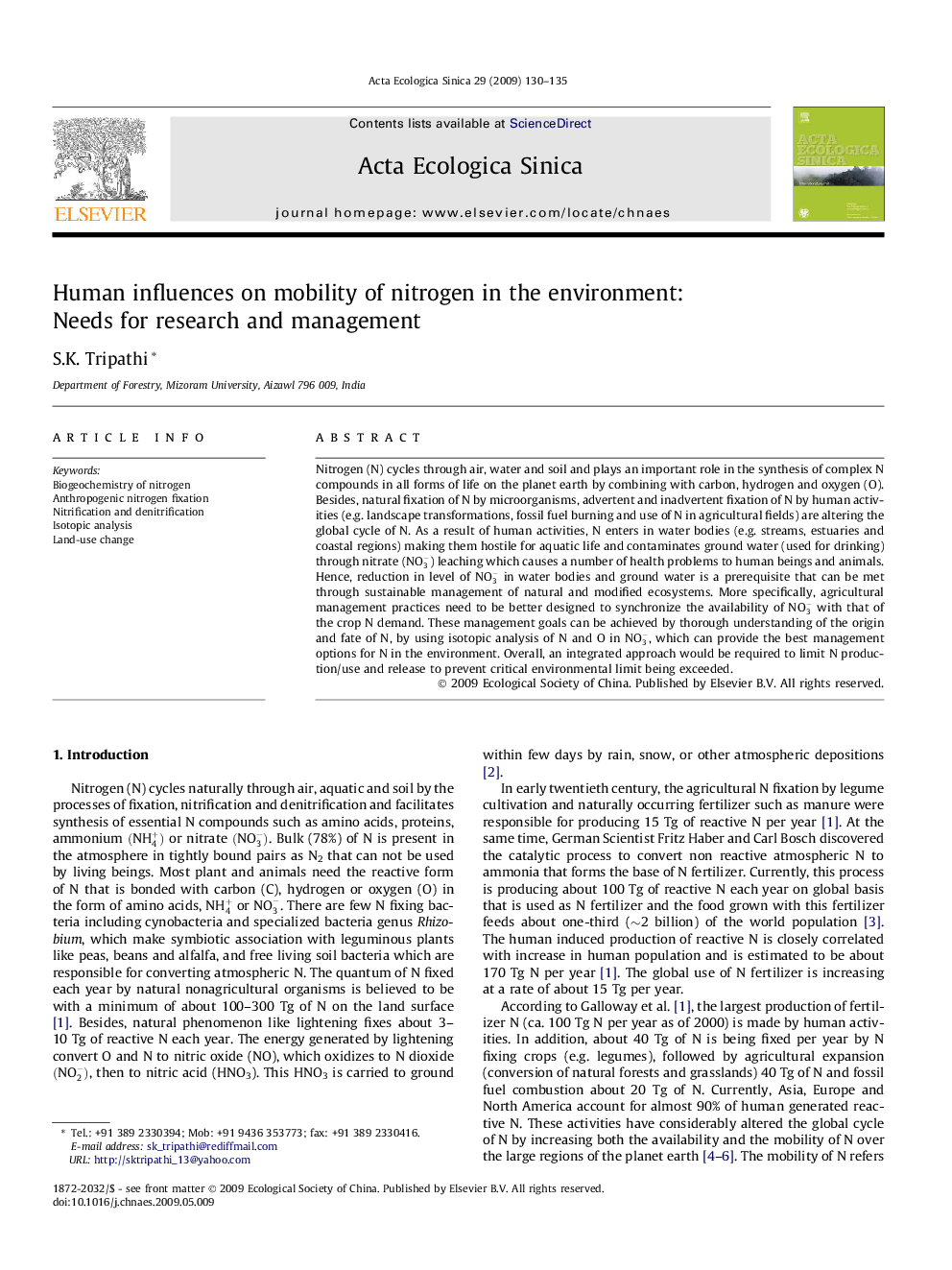| Article ID | Journal | Published Year | Pages | File Type |
|---|---|---|---|---|
| 4380159 | Acta Ecologica Sinica | 2009 | 6 Pages |
Nitrogen (N) cycles through air, water and soil and plays an important role in the synthesis of complex N compounds in all forms of life on the planet earth by combining with carbon, hydrogen and oxygen (O). Besides, natural fixation of N by microorganisms, advertent and inadvertent fixation of N by human activities (e.g. landscape transformations, fossil fuel burning and use of N in agricultural fields) are altering the global cycle of N. As a result of human activities, N enters in water bodies (e.g. streams, estuaries and coastal regions) making them hostile for aquatic life and contaminates ground water (used for drinking) through nitrate (NO3-) leaching which causes a number of health problems to human beings and animals. Hence, reduction in level of NO3- in water bodies and ground water is a prerequisite that can be met through sustainable management of natural and modified ecosystems. More specifically, agricultural management practices need to be better designed to synchronize the availability of NO3- with that of the crop N demand. These management goals can be achieved by thorough understanding of the origin and fate of N, by using isotopic analysis of N and O in NO3-, which can provide the best management options for N in the environment. Overall, an integrated approach would be required to limit N production/use and release to prevent critical environmental limit being exceeded.
